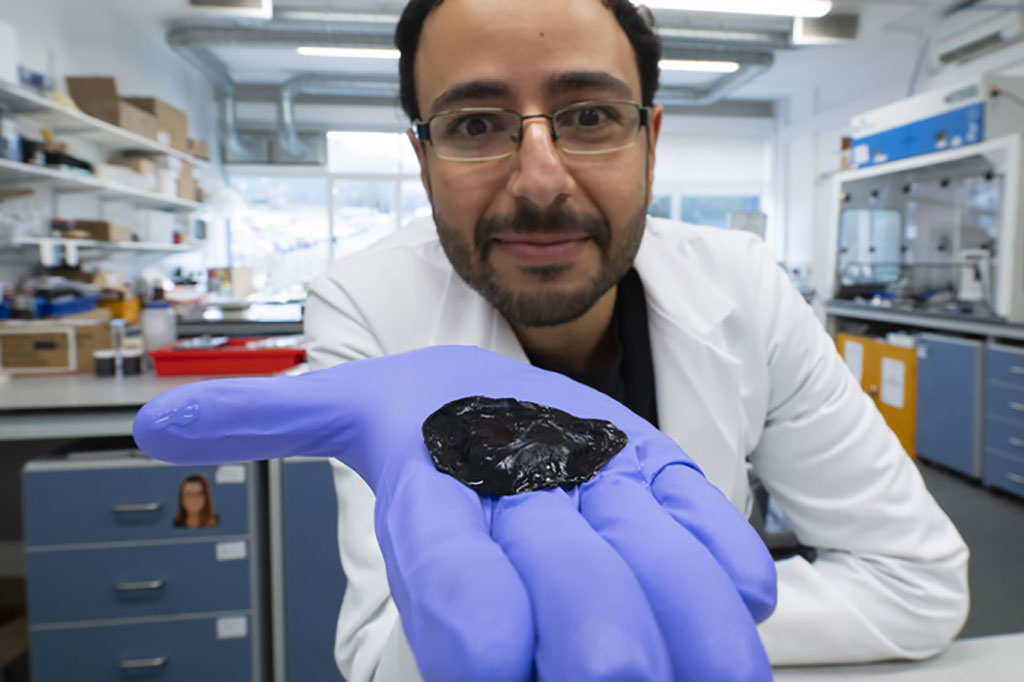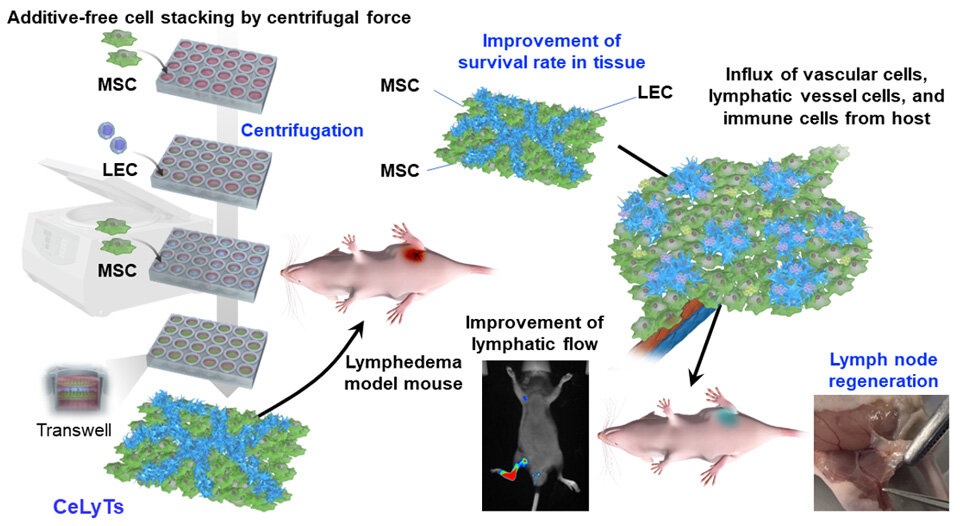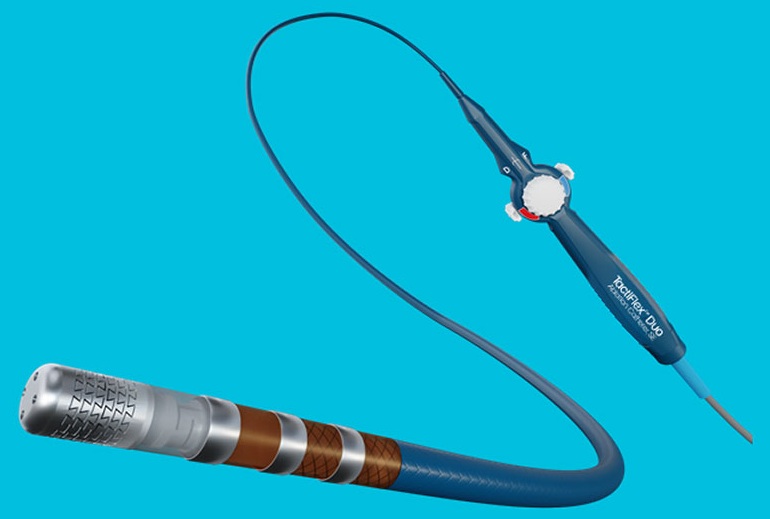New Biodegradable Health Sensors Could Revolutionize Health Monitoring Technology
|
By HospiMedica International staff writers Posted on 06 Mar 2023 |

The gathering of accurate patient information is the backbone of modern healthcare. Through continuous data collection and analysis, healthcare providers can develop a comprehensive understanding of their patients and consequently make better decisions. Wearable technology in healthcare refers to electronic devices that consumers can wear and use to track their personal health and fitness data. Now, the development of new biodegradable health sensors has the potential to revolutionize the way we experience personal healthcare and fitness monitoring technology.
Scientists at the University of Sussex (Brighton, UK) have developed new health sensors that can monitor heart rate and temperature by using natural elements like rock salt, water, seaweed, and graphene. The sensors are fully biodegradable due to their composition of solely natural ingredients, making them a more environmentally friendly alternative to commonly used rubber and plastic-based sensors. Their natural composition also places them in the emerging field of edible electronics- electronic devices safe for consumption. Importantly, the researchers have discovered that their eco-friendly seaweed-based sensors exhibit superior sensitivity compared to existing synthetic hydrogels and nanomaterials, commonly used in wearables for health monitoring. This improved sensitivity can provide higher accuracy in monitoring vital signs.
Seaweed is an effective insulator. However, by mixing a critical amount of graphene with seaweed, scientists managed to develop an electrically conductive film. Upon soaking the film in a salt bath, it quickly absorbs water, leading to the formation of a soft, spongy, and electrically conductive hydrogel. This breakthrough has the potential to revolutionize health monitoring technology, where future applications of clinical-grade wearable sensors can resemble second skin or temporary tattoos - they are lightweight, easy to apply, and safe since they are made with natural ingredients. As a result, this innovation could significantly improve the overall patient experience, circumventing the need for more commonly used invasive hospital instruments, wires, and leads.
“For me, one of the most exciting aspects to this development is that we have a sensor that is both fully biodegradable and highly effective,” said lead scientist Dr. Conor Boland, a physicist at the University of Sussex. “The mass production of unsustainable rubber and plastic based health technology could, ironically, pose a risk to human health through microplastics leeching into water sources as they degrade.”
Related Links:
University of Sussex
Latest Critical Care News
- Gut Bacteria from Amphibians and Reptiles Show Complete Tumor Elimination
- High-Dose Inhaled Nitric Oxide Emerges as Promising Antimicrobial Therapy
- Glowing Bacterial Sensors Could Improve Detection of Gut Illness
- Innovative ‘Poop Pills’ Dramatically Improve Cancer Treatment

- New Nanomaterial Kills Cancer Cells While Sparring Healthy Tissues
- AI Model Accurately Predicts Neurological Recovery After Cardiac Arrest
- Battery-Free Nano-Sensors Pave Way for Next-Generation Wearables
- Imaging Technology Detects Early Signs of Cardiovascular Risk Through Skin
- New Therapeutic Approach Marks Breakthrough in Pediatric Heart Disease
- AI Model Accurately Identifies Prediabetics Using Only ECG Data
- Injectable Disease-Fighting Nanorobots to Improve Precision Cancer Therapy
- Web-Based Tool Enables Early Detection and Prevention of Chronic Kidney Disease
- Tiny Sensor to Transform Head Injury Detection
- Bacterial Behavior Breakthrough to Improve Infection Prevention in Biomedical Devices
- Implanted 'Living Skin' Indicates Internal Inflammation Without Blood Samples
- AI Tool Improves Speed and Accuracy of Cervical Cancer Treatment Planning
Channels
Artificial Intelligence
view channelSurgical Techniques
view channel
New Classification System Brings Clarity to Brain Tumor Surgery Decisions
Low-grade brain tumors known as IDH-mutant gliomas (CNS WHO grade 2) are life-threatening despite their slow growth. Surgeons must balance maximal tumor removal against the risk of neurological deficits,... Read more
Boengineered Tissue Offers New Hope for Secondary Lymphedema Treatment
The rising global incidence of cancer has led to an increasing number of surgeries involving lymph node removal. While these procedures are critical for cancer staging and preventing metastatic spread,... Read morePatient Care
view channel
Revolutionary Automatic IV-Line Flushing Device to Enhance Infusion Care
More than 80% of in-hospital patients receive intravenous (IV) therapy. Every dose of IV medicine delivered in a small volume (<250 mL) infusion bag should be followed by subsequent flushing to ensure... Read more
VR Training Tool Combats Contamination of Portable Medical Equipment
Healthcare-associated infections (HAIs) impact one in every 31 patients, cause nearly 100,000 deaths each year, and cost USD 28.4 billion in direct medical expenses. Notably, up to 75% of these infections... Read more
Portable Biosensor Platform to Reduce Hospital-Acquired Infections
Approximately 4 million patients in the European Union acquire healthcare-associated infections (HAIs) or nosocomial infections each year, with around 37,000 deaths directly resulting from these infections,... Read moreFirst-Of-Its-Kind Portable Germicidal Light Technology Disinfects High-Touch Clinical Surfaces in Seconds
Reducing healthcare-acquired infections (HAIs) remains a pressing issue within global healthcare systems. In the United States alone, 1.7 million patients contract HAIs annually, leading to approximately... Read moreHealth IT
view channel
EMR-Based Tool Predicts Graft Failure After Kidney Transplant
Kidney transplantation offers patients with end-stage kidney disease longer survival and better quality of life than dialysis, yet graft failure remains a major challenge. Although a successful transplant... Read more
Printable Molecule-Selective Nanoparticles Enable Mass Production of Wearable Biosensors
The future of medicine is likely to focus on the personalization of healthcare—understanding exactly what an individual requires and delivering the appropriate combination of nutrients, metabolites, and... Read moreBusiness
view channel
Medtronic and Mindray Expand Strategic Partnership to Ambulatory Surgery Centers in the U.S.
Mindray North America and Medtronic have expanded their strategic partnership to bring integrated patient monitoring solutions to ambulatory surgery centers across the United States. The collaboration... Read more
FDA Clearance Expands Robotic Options for Minimally Invasive Heart Surgery
Cardiovascular disease remains the world’s leading cause of death, with nearly 18 million fatalities each year, and more than two million patients undergo open-heart surgery annually, most involving sternotomy.... Read more
WHX in Dubai (formerly Arab Health) to debut specialised Biotech & Life Sciences Zone as sector growth accelerates globally
World Health Expo (WHX) in Dubai, formerly Arab Health, which takes place from 9-12 February 2026 at the Dubai Exhibition Centre (DEC), has officially announced the launch of a new dedicated Biotech &... Read more
















